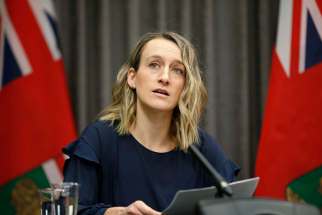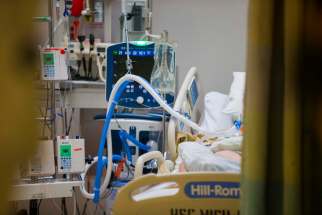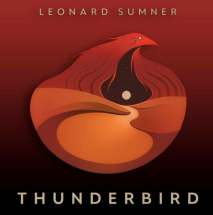Manitoba’s 70 per cent immunization target pushed back weeks Vaccine-priority communities to be named Friday
Read this article for free:
or
Already have an account? Log in here »
To continue reading, please subscribe:
Monthly Digital Subscription
$0 for the first 4 weeks*
- Enjoy unlimited reading on winnipegfreepress.com
- Read the E-Edition, our digital replica newspaper
- Access News Break, our award-winning app
- Play interactive puzzles
*No charge for 4 weeks then price increases to the regular rate of $19.00 plus GST every four weeks. Offer available to new and qualified returning subscribers only. Cancel any time.
Monthly Digital Subscription
$4.75/week*
- Enjoy unlimited reading on winnipegfreepress.com
- Read the E-Edition, our digital replica newspaper
- Access News Break, our award-winning app
- Play interactive puzzles
*Billed as $19 plus GST every four weeks. Cancel any time.
To continue reading, please subscribe:
Add Free Press access to your Brandon Sun subscription for only an additional
$1 for the first 4 weeks*
*Your next subscription payment will increase by $1.00 and you will be charged $16.99 plus GST for four weeks. After four weeks, your payment will increase to $23.99 plus GST every four weeks.
Read unlimited articles for free today:
or
Already have an account? Log in here »
Hey there, time traveller!
This article was published 21/04/2021 (1698 days ago), so information in it may no longer be current.
Manitoba’s COVID-19 vaccine task force pushed back its target of immunizing 70 per cent of the adult population with a single dose — a key milestone toward achieving a level of herd immunity — from mid-May to early June on Wednesday.
At the same time, the province backtracked on its commitment to announce prioritized vaccine access for residents and front-line workers in viral hot spots on Wednesday as the province’s COVID-19 caseload grew by another 164 new infections.
On the evening of April 15, during an online public forum, Health Minister Heather Stefanson announced the province would announce which communities would be prioritized — where all adult residents and certain front-line workers would become eligible for vaccination — on Wednesday.
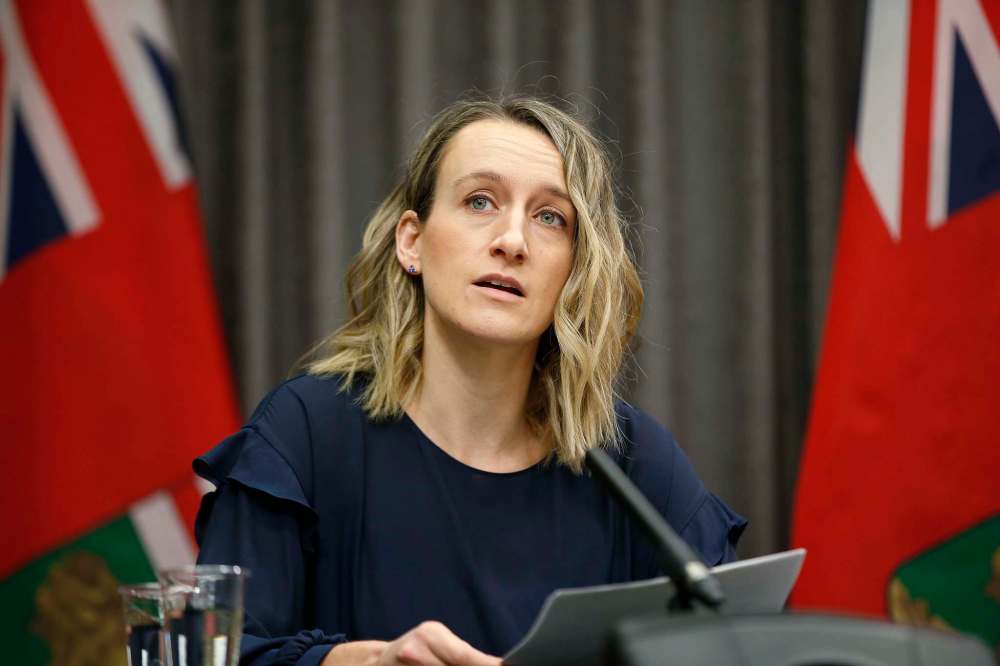
However, Dr. Joss Reimer, medical lead for the vaccine task force, said the province needed more time to perform additional checks of its priority index to confirm it predicts COVID-19 transmission as expected.
“We want to get it right,” Reimer said. “While we know more Pfizer doses are coming, we still want to make sure the folks that we are prioritizing are really the ones who are at highest risk.”
Reimer said the communities that will be prioritized will be announced on Friday, the same day eligibility will be expanded to all adults in those hard-hit areas.
“While we know more Pfizer doses are coming, we still want to make sure the folks that we are prioritizing are really the ones who are at highest risk.”
– Dr. Joss Reimer
“The three days that we had between when we announced this new direction and today, just didn’t give us quite enough of the analysis time to make sure that we had the right communities,” Reimer said.
Opposition NDP health critic Uzoma Asagwara told reporters there was no justification for the delay.
“This government has had that data for many, many, many months, and they have failed to put a plan together to make sure that some of the most vulnerable communities in Manitoba are protected,” Asagwara said. “So any further delay, delays in Manitobans being protected who are very, very vulnerable — that is not OK.”
Who can get a COVID-19 vaccine across Canada?
As COVID-19 vaccine supplies ramp up across the country, most provinces and territories have released details of who can expect to receive a shot in the coming weeks.
There are approximately 31 million Canadians over 16, and no vaccines are approved for anyone younger than 16.
As COVID-19 vaccine supplies ramp up across the country, most provinces and territories have released details of who can expect to receive a shot in the coming weeks.
There are approximately 31 million Canadians over 16, and no vaccines are approved for anyone younger than 16.
Here’s a list of the inoculation plans throughout Canada:
Newfoundland and Labrador
Health officials say vaccinations have begun for first responders. Pre-registration for COVID-19 vaccines has opened for people aged 70 or older and for home-support workers.
Nova Scotia
As of April 9, Nova Scotians 65 years of age and older became eligible to receive their first dose. Public health is partnering with pharmacists and doctors to provide the vaccines at 25 locations.
Nova Scotia has added front-line police officers to the list of people eligible for vaccination during the second phase of the province’s rollout plan, joining groups such as long-haul truck drivers and hospital workers over the age of 60.
The province is also planning to use mobile van clinics to vaccinate about 900 people who work at or use homeless shelters in the Halifax area.
Prince Edward Island
Health officials in Prince Edward Island say they will shift their focus to getting a first dose of COVID-19 vaccine to all adults by July 1, even if it means delaying the second shot for some.
P.E.I. has joined suspended administering the Oxford-AstraZeneca vaccine to people under age 55 due to concerns about a possible link between the shot and rare blood clots.
New Brunswick
New Brunswick health officials say people 70 and older, a caregiver or a family member acting on their behalf can now make an appointment for a vaccine at a pharmacy.
Health-care professionals who have close contact with patients, and people with complex medical conditions are also eligible to receive a COVID-19 vaccine.
All residents of long-term care homes have been offered at least one dose of vaccine, and as of March 19, all residents of First Nations communities aged 16 or older were given access to their first dose of vaccine.
Workers who regularly travel across the border, including regular commuters, truckers and rotational workers are also eligible to receive vaccines.
Quebec
Quebec has expanded access to COVID-19 vaccines to Montrealers who are essential workers or who have chronic illnesses. Essential workers such as teachers and first responders can now book an appointment after providing proof of employment.
Quebec has also opened vaccination appointments for anyone over the age of 60 across the province.
Quebecers between the ages of 55 and 79 can receive an Oxford-AstraZeneca vaccine at walk-in clinics.
Officials announced on April 8 the first 13 companies that will operate clinics in their workplaces, with each site able to vaccinate up to 25,000 people between May and August. Participating companies include National Bank, Bell, and Groupe CH, owner of the Montreal Canadiens NHL team. The clinics will be located in eight different health regions and should be operational by May 1.
Ontario
The Ontario government said beginning April 5, people aged 60 and over could book their vaccine appointments in every region.
Some residents of Toronto and Peel Region aged 50 and older can now book their COVID-19 vaccine appointments. Toronto says people who live in hot spot neighbourhoods can book an appointment to get their shot.
Starting Tuesday, those 40 and older can start receiving the Oxford-AstraZeneca vaccine. Some 1,400 pharmacies in COVID-19 hot spots are now offering the Oxford-AstraZeneca vaccine.
Saskatchewan
The Saskatchewan Health Authority is booking vaccinations for residents 48 and older. The minimum age drops to 40 for people living in the Far North.
Additional health-care workers are eligible for shots: staff in private doctors’ offices, private digital imaging clinics, community labs and the Saskatchewan cancer agency.
The province has also expanded the vaccine delivery plan for people in more vulnerable groups to include all pregnant women and 16- and 17-year-olds who are considered clinically extremely vulnerable.
Saskatchewan has also dropped the age at which people can receive the Oxford-AstraZeneca vaccine to 40 from 55.
Alberta
Albertans born in 2005 or earlier with high-risk underlying health conditions are eligible for shots.
The next phase of health-care workers can also book appointments: physicians, nurses, pharmacists, dentists, their office staff, lab workers, practicum students in clinical areas, as well as health workers on First Nations reserves and Metis settlements.
Previously, shots have been available to front-line health workers, staff and residents in supportive living facilities, Albertans born in 1956 or earlier and First Nations, Inuit and Metis people born in 1971 or earlier.
The province has also lowered the minimum age for the Oxford-AstraZeneca vaccine to 40 from 55.
British Columbia
B.C.’s Ministry of Health says people 40 years old and older were invited to register Monday, with those 35 and older signing up Tuesday and 30 and older Wednesday. Those 25 and older can register Thursday and 18 and above can sign up Friday.
Once registered, users receive a confirmation code. They then wait for an email, text or call telling them they’re eligible and can book their vaccine appointment using that code.
B.C. has joined other provinces in lowering the age for those eligible to receive the Oxford-AstraZeneca shot to 40. Adults living and working in Whistler started receiving their COVID-19 vaccinations on April 12.
Firefighters, police and paramedics, meanwhile, are being vaccinated with the Pfizer-BioNTech and Moderna vaccines alongside staff at schools and childcare centres.
Nunavut
Nunavut has opened vaccinations to anyone 18 and older.
The territory expects to finish its vaccine rollout of first and second doses by the end of April.
Northwest Territories
The Northwest Territories is also providing vaccine to those 18 and older and expects to finish its rollout by the end of April.
Yukon
The Yukon government says nearly 46 per cent of the territory’s residents have now been fully vaccinated against COVID-19.
Priority for vaccinations has been given to residents and staff in long-term care homes, group homes and shelters, as well as health-care workers and personal support workers. People over the age of 80 who are not living in long-term care, and those living in rural and remote communities, including Indigenous Peoples, are also on the priority list for shots.
Source: The Canadian Press
On Wednesday, Reimer was able to specify that certain groups in the prioritized communities will be eligible, including those who work in schools, daycare centres, food processing, grocery stores, convenience stores, gas stations, as well as public health inspectors and at locations that serve food to the public (restaurants and food banks).
“We will continue to look at other types of workers in those communities, but wanted to start with those who were most obviously in the data experiencing higher risks, and/or were clearly defined as far as where they worked,” Reimer said.
She said the selected geographic areas will be chosen based on previous rates of COVID-19 in the second and third waves, in addition to population density, proportion of racialized populations, average income and housing.
Shaun Jeffrey, executive director of the Manitoba Restaurant and Foodservices Association, said the province’s inclusion of food service workers in its vaccination plan acknowledges the threat faced by staff each day.
“We’ve been really advocating as a front-line facing that our staff are definitely under increased risk,” Jeffrey said.
Jeffrey said his association is ready to assist the province in the rollout to restaurant staff and communicate the changes in eligibility criteria to members once they are finalized.
“This government has had that data for many, many, many months, and they have failed to put a plan together to make sure that some of the most vulnerable communities in Manitoba are protected.”
– NDP health critic Uzoma Asagwara
“We can help Manitoba Health with data and feedback and communication to get this out. The last thing we want to do is make this complicated,” Jeffrey said. “We need to make sure our industry takes advantage of it as much as possible.”
Amalgamated Transit Union Local 1505 said it was appalled to see bus operators, mechanics and maintenance workers were not included among prioritized workers.
“I find it bewildering that transit workers are again left out of the priority vaccination,” union president Romeo Ignacio said in a statement.
New day, new rules
Age eligibility criteria for the COVID-19 vaccine was lowered to 50 for the general population and 30 for First Nations people on Wednesday.
The province said appointments were available at mass vaccination clinics in Winnipeg at the RBC Convention Centre and at the new clinic at WSF Soccer North at 770 Leila Ave., which opens on May 7.
Appointments were also available in Brandon, Thompson, Selkirk and Morden. Eligible people can book their shot at a mass clinic online at protectmb.ca with an email address and their health card number.
Age eligibility criteria for the COVID-19 vaccine was lowered to 50 for the general population and 30 for First Nations people on Wednesday.
The province said appointments were available at mass vaccination clinics in Winnipeg at the RBC Convention Centre and at the new clinic at WSF Soccer North at 770 Leila Ave., which opens on May 7.
Appointments were also available in Brandon, Thompson, Selkirk and Morden. Eligible people can book their shot at a mass clinic online at protectmb.ca with an email address and their health card number.
Appointments at mass vaccination clinics and pop-up clinics can be made by calling 1-844-626-8222.
As of Wednesday, front-line police and firefighters also became eligible to be vaccinated.
Across Manitoba on Tuesday, 8,771 doses of the COVID-19 vaccine were administered to people. As of Tuesday night, 364,389 doses had been given in the province including 293,995 first doses and 70,394 second doses.
So far, Manitoba has received 521,910 doses of COVID-19 vaccine, including a shipment of 35,100 doses of the Pfizer-BioNTech vaccine that arrived in the past 48 hours.
The province had used about 70 per cent of its inventory as of Tuesday.
Based on provincial figures, 85 per cent of Manitobans age 80 to 89 have received one dose of vaccine, 79 per cent of Manitobans age 70 to 79 have received one shot, and 46 per cent of people age 60 to 69 have received a single dose.
People 40 and older are eligible for the AstraZeneca/Covishield vaccine, which is offered at medical clinics and pharmacies.
People can book appointments to be vaccinated directly with their health care provider. A list of participating clinics and pharmacies is available at www.gov.mb.ca/covid19/vaccine/finder.html
Reimer said only a few prioritized communities can become eligible at once, based on vaccine supply. More communities will be included down the line based on the prioritization index.
She suggested there will be significant overlap between communities served by five vaccine clinics that will open next week, in areas with a large urban Indigenous population, and the communities that will be prioritized by geography. Two clinics will open in Winnipeg at 180 Higgins Ave. and 363 McGregor St.
For people who do not live or work in a prioritized community, Reimer said their chance at vaccine eligibility could be pushed back by about 14 days.
“We’re right into that beginning of this third wave and this is the time where we might be able to make a big impact if we can get the vaccine to the right neighbourhoods,” Reimer said.
“Even for those individuals who will have eligibility a little later than we originally thought, this is still beneficial for them,” Reimer said. “If we can keep transmission rates down, that means fewer public health measures.”
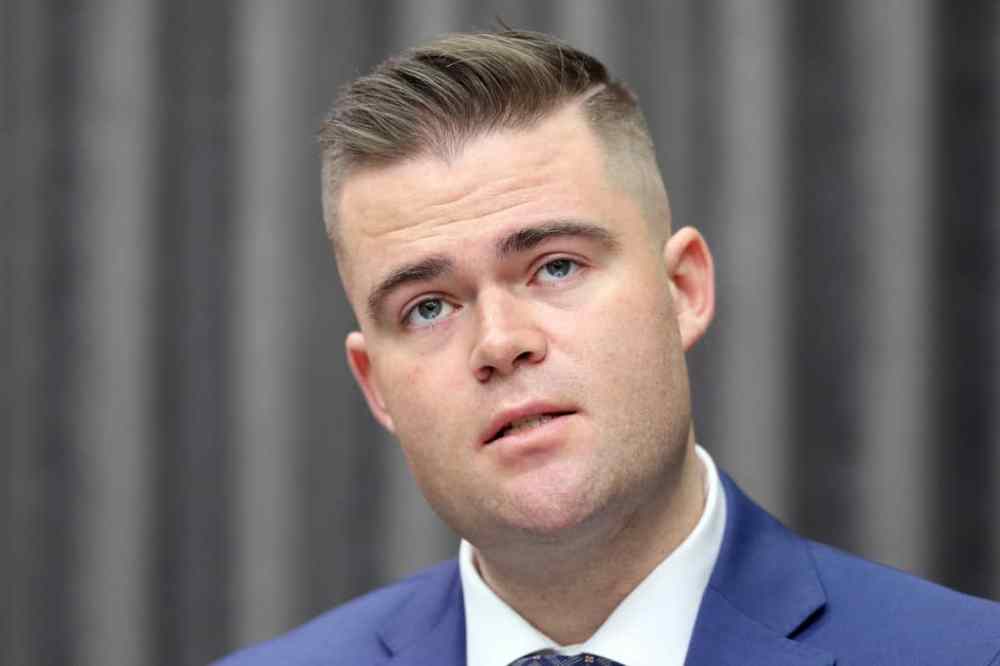
Overall, Johanu Botha, operations and planning lead for the vaccine task force, said the province estimates it will be able to immunize 70 per cent of the adult population with one dose by June 5, at the earliest.
The estimate is based on updated vaccine delivery schedules from the federal government. Previously, the province estimated it could immunize 70 per cent of adults by May 21 if it had a high supply of vaccines. Under a lower supply scenario, the date to deliver vaccines to 70 per cent of adults is now June 9, which has improved from June 14.
To immunize 70 per cent of adults in Manitoba, an estimated 748,000 people would have to receive a single shot.
“The analysis of our task force suggests that by the time we get to early June, that the supply chain overall will really have stabilized and be robust, across at the very least Pfizer, Moderna and AstraZeneca,” Botha said. “So we will continue to hum along after early June.”
As of Wednesday, 521,910 total COVID-19 vaccine doses had been delivered to Manitoba and 293,995 first doses and 70,394 second doses had been administered. By May 23, the province will receive another 280,670 doses, the federal government said.
— with files from Larry Kusch
danielle.dasilva@freepress.mb.ca

Our newsroom depends on a growing audience of readers to power our journalism. If you are not a paid reader, please consider becoming a subscriber.
Our newsroom depends on its audience of readers to power our journalism. Thank you for your support.
History
Updated on Wednesday, April 21, 2021 1:59 PM CDT: Adds context
Updated on Wednesday, April 21, 2021 6:12 PM CDT: Updates earlier version with factboxes
Updated on Wednesday, April 21, 2021 6:31 PM CDT: Adds photos, formatting.
Updated on Wednesday, April 21, 2021 8:28 PM CDT: Adds detail about the online forum

